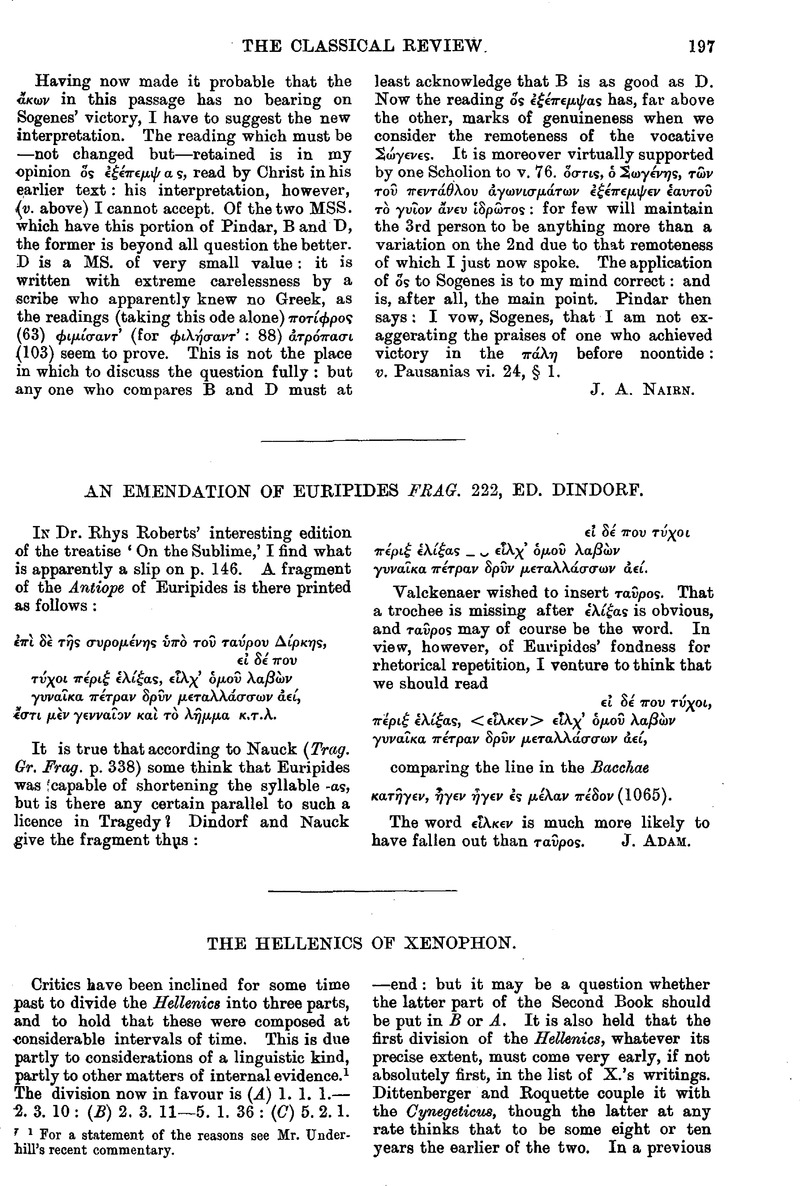No CrossRef data available.
Article contents
The Hellenics of Xenophon
Published online by Cambridge University Press: 27 October 2009
Abstract

- Type
- Original Contributions
- Information
- Copyright
- Copyright © The Classical Association 1901
References
page 197 note 1 For a statement of the reasons see Mr. Underbill's recent commentary.
page 198 note 1 It has been suggested that in the three passages we should read ὡς ἥνυτον &c. for ὡς ἤνοιγον &c., and this gives us just the right sense, as best they could, &c. In Ar. Rhet. 3. 9. 1409 b 4, the best MS. has by a blunder νογειν for ντειν, and in Plut. Mor. 130 D νοιστν is a blunder for νυοστν (ὡς νυστν στι). We have Anab. 1. 8. 11 ὡς νυστν and R. L. 1. 3 ![]() and, if ὡς ἥνυτον does not occur elsewhere in X., neither does ὡς ἤνοιγον. But it would be strange for the same mistake to occur in three successive places.
and, if ὡς ἥνυτον does not occur elsewhere in X., neither does ὡς ἤνοιγον. But it would be strange for the same mistake to occur in three successive places.


